Golden Anniversary of a Golden Moment
Celebrating the first British victory in a mountain stage of the Tour de France
Words: Chris Sidwells
Photos: Offside and Andy Jones
On July 18th, 1968 Barry Hoban won stage 19, Grenoble to Sallanches/Cordon, and in doing so became the first British cyclist ever to win a mountain stage of the Tour de France.
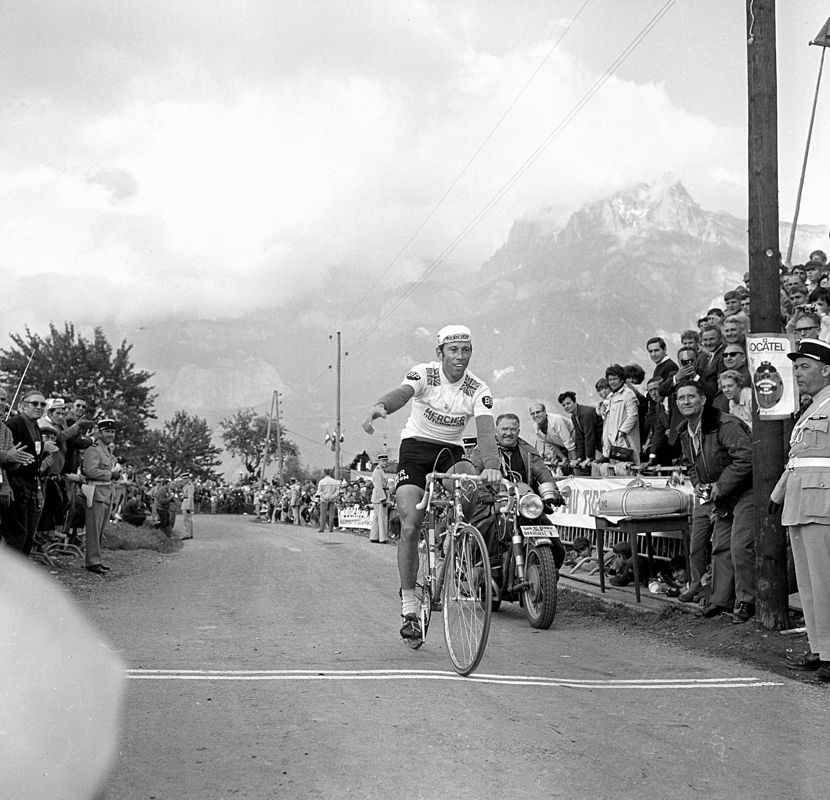
Michael Wright won a stage through the Vosges in 1967, but it was hilly rather than mountainous, with just two passes, the highest being the Col du Donon at 727 metres. Hoban’s win was in the high Alps, and he rode solo across the Col des Aravis (1486 metres), the Col de la Colombière (1613 metres) to finish halfway up the Col du Cordon under the giant white bulk of Mont Blanc. And where Wright outsprinted six others in a breakaway just over a minute ahead of the whole peloton, Hoban’s victory margin was four minutes and six seconds over Franco Bitossi of Italy, with the rest of the field spread over 30 minutes.
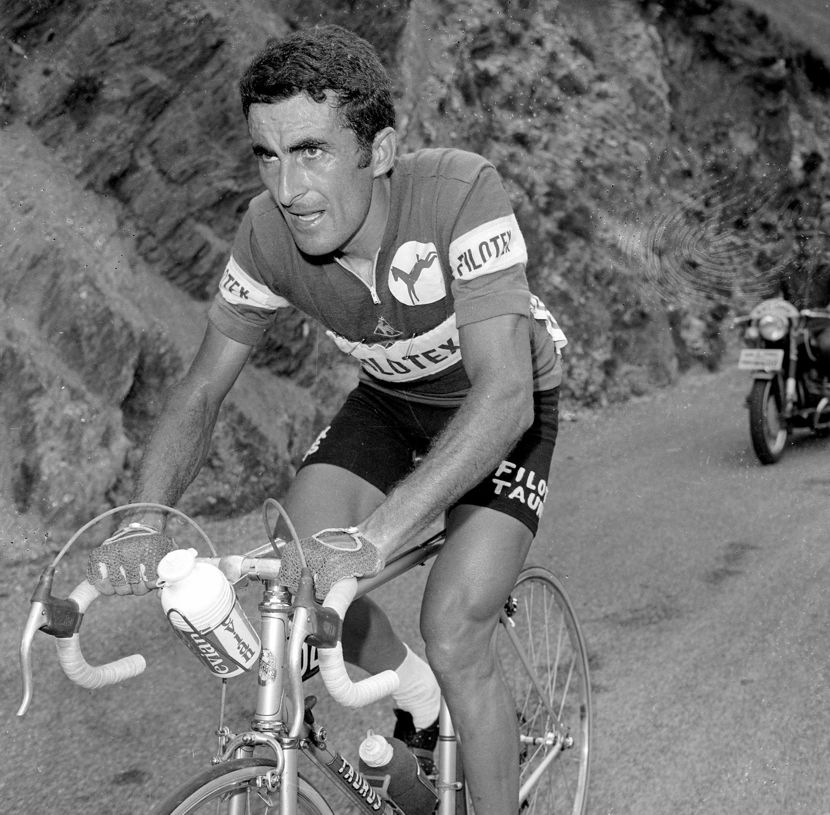
Franco Bitossi
To celebrate the 50th anniversary of Hoban’s ground-breaking win, on Wednesday July 18th, 2018 Lamb and Associates of Ponteland (Financial Planners) will host an ‘Evening with Barry Hoban’ at Start Cycles, 35-37 Market Street, Newcastle Upon Tyne, NE1 6JE. To book tickets for an Evening With Barry Hoban in Newcastle on July 18th
Barry will talk about this landmark victory and about the rest of his career, during which he raced against some of the all-time greats. He welcomes questions from the audience, and signed copies of his autobiography Vas-y Barry, published by www.cyclinglegends.co.uk will be on sale at the venue.
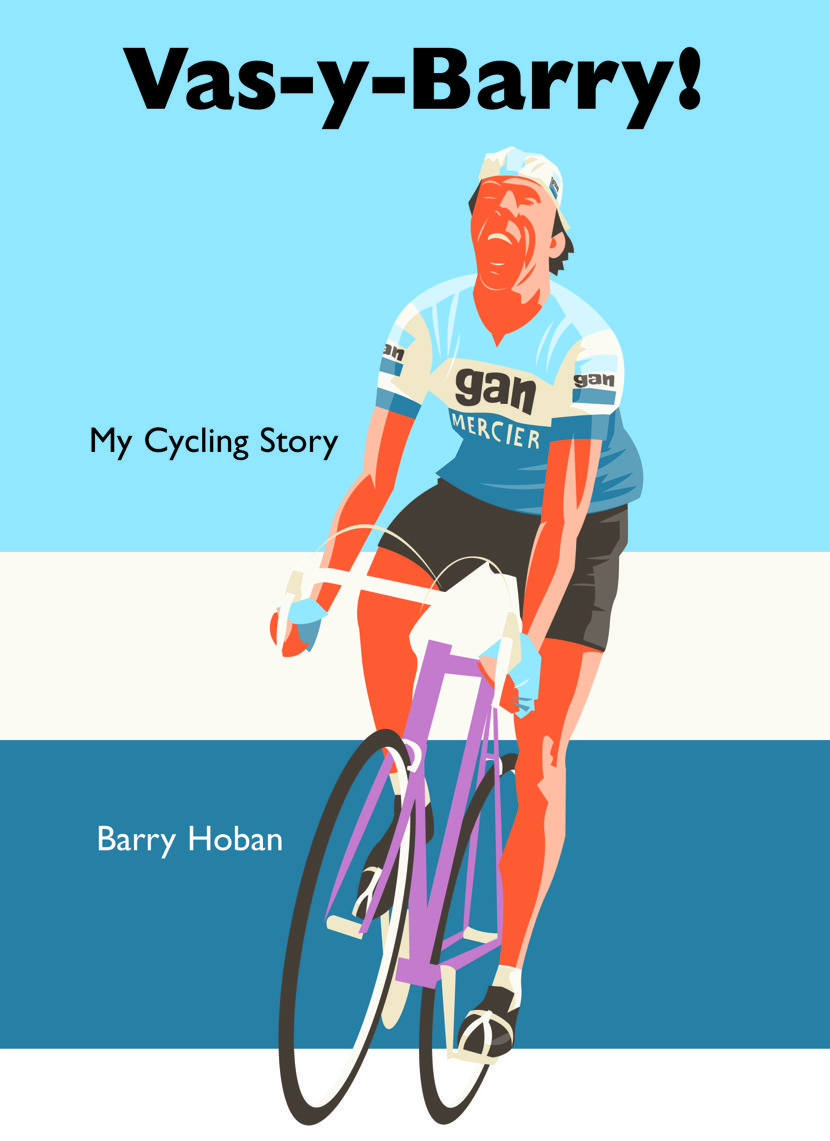
Speaking about the event Hoban says, “I’m looking forward to talking about that stage, and about the rest of my career. It all still seems like yesterday, and I particularly remember the uphill bits, and there were lots of uphill bits on that stage 50 years ago.
“I’ll say a lot more about it on the night, but it was different to my other stage wins, I didn’t start off with a plan to win, a plan developed as the stage went on. At first I just wanted to get ahead because I knew that on those climbs it would be a tough day if the favourites attacked each other. So after the first climb, when everybody was still together, I just let my bike go on the descent, and being a good descender I quickly got a gap.
“Andrés Gandarias of Spain followed me down, but he was a good climber and quite high up on the overall standings. There was no way the favourites would let him go, so I persuaded him to drop back, which being one of the good guys Andreas did, while I pressed on alone to the Col des Aravis.
“Aravis quite a savage climb but when I got there I started thinking; right I’ve got a good lead here, if I continue going up the Aravis at this pace they won’t catch me until I’m near the top. Then I’ll be able to hang on for a bit, and I’ll certainly be able to stay with them on the descent. So that’s what I did.
“But by the top of the climb I had a four or five-minute lead. Behind me a group of climbers had gone up one minute quicker, but I took that minute back plus another on the descent. Then we had a flat run to the bottom of the Col de la Colombière
“At the bottom of the Colombière I had around eight minutes. I still didn’t think I would get to the finish on my own, but if I got to the top of the Colombière, and I managed to stay with whoever caught me they wouldn’t drop me on the descent, so I’d be able to get to the bottom of the final climb, the Col du Cordon in the front group.
“But nobody did catch me. I got to the top of the Col de la Colombière alone. The three chasers had taken a minute out of me. But down the other side I took it back and added another minute.
“I had nearly ten minutes now, but I’d done 135 kilometres on my own, and if you blow up on a long climb you can lose a big lead, so I used the 14 and not the 13 sprocket to ride along the valley between the bottom of the Colombière and the final climb to Cordon.
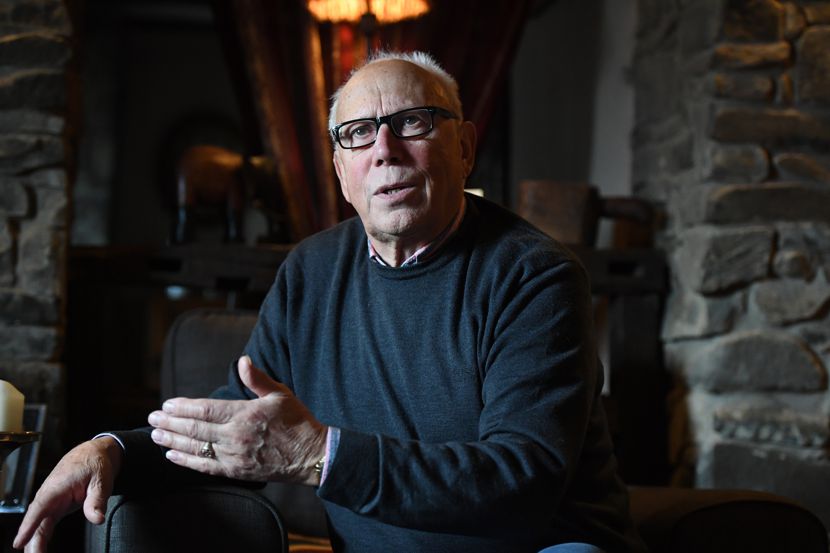
At the bottom of teh Cordon there was ten kilometres to go, all uphill, and you can lose at least a minute per kilometre if you blow uphill, so I shifted to my biggest sprocket, a 23 or 24, and I started to climb, just tapping out a steady rhythm.
“Nearer the finish I felt better, so I shifted up a sprocket or two and I won the stage, still with more than four minute’s lead.
“What a great feeling that was, winning a mountain stage of the Tour de France on my own. I was overjoyed. One of the prizes came from the local farming community, a pedigree cow called Estelle. People still ask me what I did with her, and I tell them I sold her to Raymond Poulidor and he has a huge herd now. Of course I didn’t, it was a publicity stunt, and what I really won was the cash value of the cow. They let me keep her bell though, it’s on my fireplace at home now.”
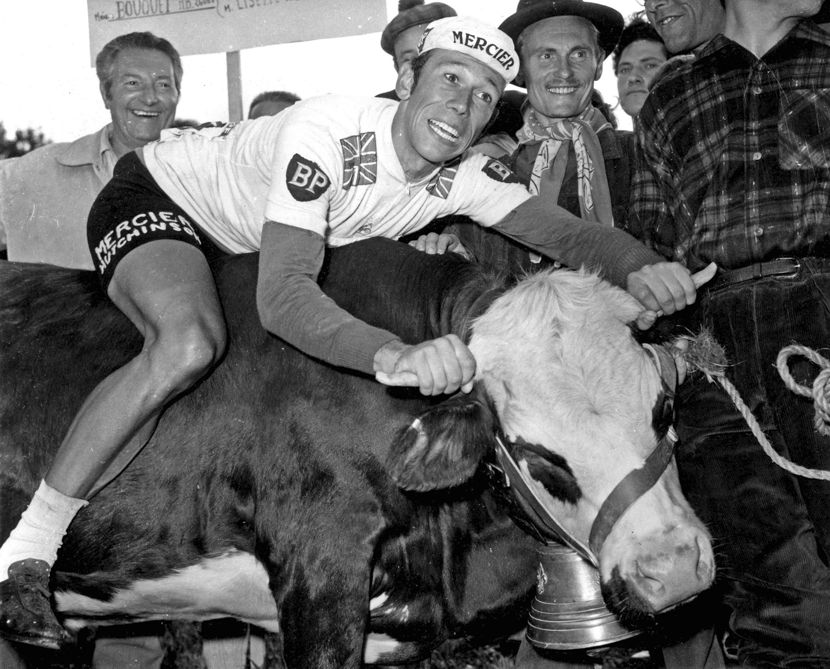
Hoban finished the 1968 Tour de France in 33rd place overall, he was seventh in the points classification and sixth in the King of the Mountains. The following year he became the first British rider to win two consecutive stages in the Tour de France, and by the end of his career he had won a total of eight. Barry Hoban still lies second in the all-time British Tour de France stage win standings behind Mark Cavendish, and when this was written he is one win ahead of Chris Froome.



